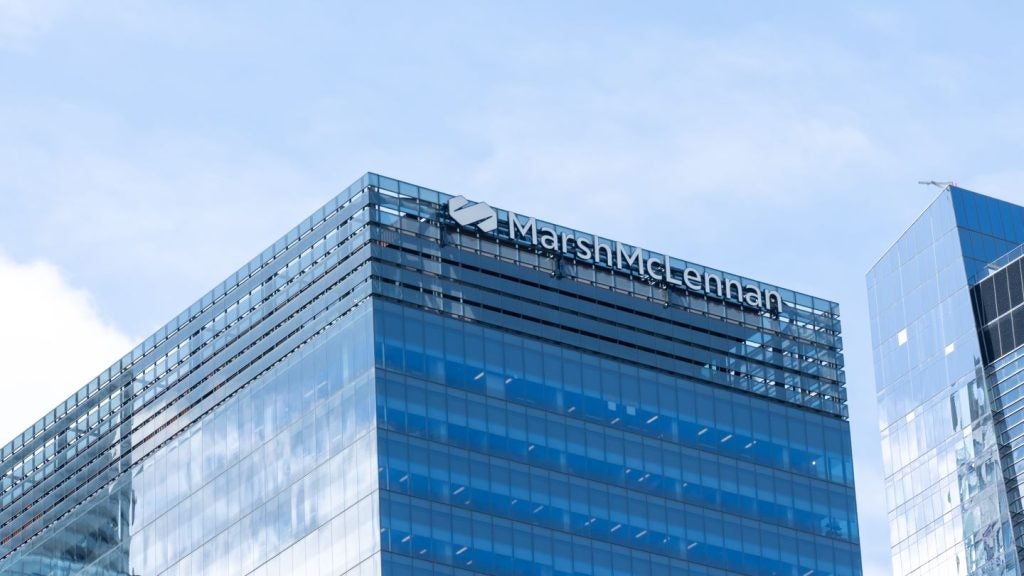
Debbie Kennedy, group head of protection strategy at Royal London, tells Ronan McCaughey why the life insurer is “absolutely committed” to the adviser market, its plan to further collaborate with digital healthcare providers and how the provider views itself as a disruptor and challenger to other protection insurance players in the UK.
Life Insurance International (LII): What has Royal London been doing over the past year to engage with consumers and grow the life and health insurance market?
Debbie Kennedy (DK): We have two channels at Royal London, direct to consumer and an intermediated channel. I’m responsible for the intermediated channel and though we don’t deal directly with consumers, we have been helping our advisers make it easy to recommend protection insurance. We have been helping advisers work with consumers on the triggers for protection insurance, such as taking out a mortgage or potentially starting a family and ensuring we have solutions that are flexible to meet these needs.
Trust is a big thing for us since I think some customers are still unsure about purchasing protection insurance and whether it will pay out for them.
It’s about being easier to recommend us and also being able to engender trust with customers when advisers talk to them. So we are very clear about our claims statistics and make sure they are available.
We have road shows for advisers and we think it’s a really important part of what we do. We also provide technical support and business development support to advisers to help grow their business.
In addition, Royal London provides tailored marketing solutions for financial advisers.
One of the things that is important to us is the quality of business we receive. We work with our advisers to monitor the quality of the business we receive as well as the number of lapses and persistency.
LII: Is the majority of Royal London’s protection insurance business channelled through advisers, and will this change?
DK: As a group, Royal London has two channels. We have the intermediated channel, which I’m responsible for, and we have a Royal London consumer channel, which is a direct channel that launched over 2 years ago
We are absolutely committed to the adviser market. The intermediated division is by far the largest division in Royal London and that covers protection insurance and pensions.
LII: How has Royal London helped financial advisers serve the mass consumer market in the past year? Can you highlight any achievements?
To make it easier for advisers to serve the mass market, you almost need to give them confidence that it will be easy to sell a protection insurance product.
This is because some of them will be put off by the thought that it’s a difficult sell and the quote premium they provide to the customer won’t be the final premium.
We partner with UnderwriteMe and use their comparison service. This provides underwritten quotes so advisers and customers are very clear about the price at the start of the journey.
LII: Do you expect to see more aggregator websites selling life insurance entering the market?
DK: I think that will be the direction of travel. We are predicting that aggregators and some of the remote channels will certainly see growth in protection insurance. Some of that is simply responding to how consumers want to buy protection.
They are much more aware they can research online and use price comparison websites. Consumers are probably happy to respond to familiar brands they see on these websites, so brand trust and recognition will become important.
What we see currently happening is a lot of consumers are starting their journey online with aggregators, but the conversion is not as optimal as it could be.
This could be because consumers are not comfortable to do the whole journey online without talking to someone. And that’s where I see referral telephony support intermediaries as a good partner.
I think we will still see the need for that help for a time to come, but what we are seeing is that customers, because they do this in other sectors, are very happy to do their research online.
LII: Why doesn't Royal London bypass intermediaries and offer consumers a direct channel?
DK: We are very committed to the adviser market. We actually think that access to good advice is really important. But we also recognise that some customers want a direct channel and we offer that through another part of our business. But the intermediated advice channel is very much a key part of who we are.
LII: How active is Royal London in the InsurTech space?
DK: We’ve invested in our analytics capability and our current focus is in the mortgage space. We want to look at how we can help advisers make the protection sale once they have completed the mortgage sale. The mortgage process can be a few hours long and it's often quite difficult to keep the customer and adviser engaged.
We are also very interested in challenging the traditional approaches as to how we assess risk and undertake more personalised underwriting.
LII: Does RL see itself as an incumbent player or a disruptor?
DK: We definitely see ourselves as a disruptor and challenger. Although both our brands Scottish Provident and Bright Grey had been around a considerable time, when we rebranded as Royal London, our whole approach and mindset was we were coming in as a challenger.
And I think during 2016 we have established ourselves as a market contender and managed to disrupt some of the more established protection insurance players.
LII: What is RL’s market share of the UK life insurance market?
DK: Royal London has a market share of over 11% of the UK life insurance sector, according to ABI Market Statistics.
LII: Following Royal London’s screening deal with Square Health, does the group intend to further invest in the digital health space?
DK: The short answer is yes. We are very interested in this area and see it as an opportunity to not only help people access insurance better, but make insurance a valued process and support them though that with wellness programmes.
It is very much an area we are looking at. We have been running a customer engagement pilot which included access to babylon’s health app. This has allowed us to test what customers would like to see in terms of digital health engagement.
LII: Does Royal London plan to launch any new products or services in 2017?
We are looking at cover for people with diabetes and how we can help them access cover in a much easier way. We don’t have a specific launch date for that yet.
We are working with a small group of advisers on this so it will not be a whole of market launch. It enables us to be more experimental in what we do and take on board customers and advisers’ feedback.
LII: What new ideas do you and Royal London have to make life insurance more relevant, simpler and easier for the public?
DK: The industry as a whole wants to raise awareness among consumers of the value of protection insurance and it’s an issue that the ABI is examining.
There are some examples in the US where they have protection industry campaigns and awareness weeks. This is something that Royal London is very keen to support. A key focus for us is financial education.
The 7 families campaign has been great to show what can happen at an industry level. We as an industry have to try something and we have talked about the industry challenges far too long.
Why don’t we try something? Then we’ll know whether it works or not.
Fast Facts on Royal London
- On 4 November 2016, Royal London reported that its intermediary protection business was up by 22% to £440m, compared to £362m on 30 September 2015
- On 4 November 2016, Royal London said its total Intermediary new life and pensions business has risen by 28% to £6,071m, compared to £4,745m on 30 September 2015
- The life insurer reported on 4 November 2016 that new business growth in its consumer business was particularly strong, driven by sales of pre-paid funeral plans and Over 50s insurance plans. Royal London is a major provider of over 50s plans







